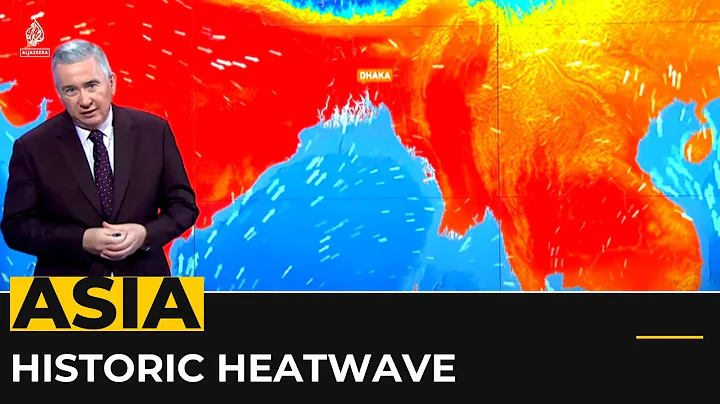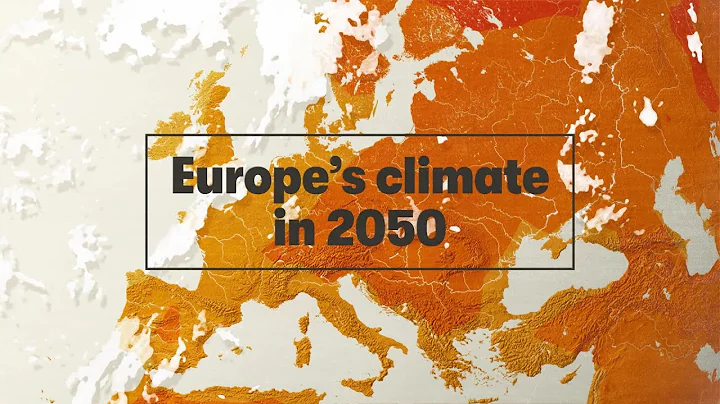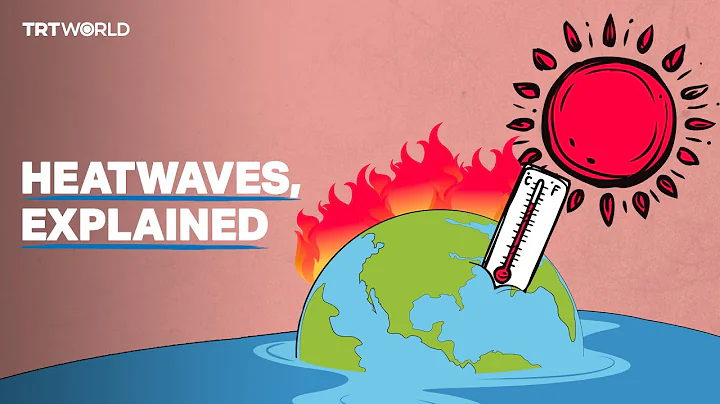reporter Zhao Shifeng compiled
In the past few days, many places around the world have been hit by heat waves. In some areas, temperatures have soared to record highs in decades, breaking the record for the same period in June since meteorological records began. In some areas, serious problems such as drought and wildfires have occurred. The World Meteorological Organization said that affected by climate change, extreme high temperatures are expected to occur more frequently, earlier, and more intensely in the future.

On June 18, a bus stop near the Cibeles Palace in Madrid, Spain, showed a real-time temperature of 46°C. (Xinhua News Agency)
The United States Western Europe encountered high temperatures early
According to the " New York Post " report on the 16th, a tourist from California, USA, was found dead in Death Valley National Park. The U.S. National Park Service confirmed that the deceased was 67-year-old former U.S. Marine Corps Captain Kelleher. He was found more than 4 kilometers away from his car and less than 10 meters from California Highway 190. He left on foot after his car ran out of fuel, while the temperature was as high as 50 degrees Celsius.
In some places in Europe, France and Spain, recent temperatures have been at least 10°C higher than the average for the same period. World Meteorological Organization spokesman Nallis said that although it is only June, the high temperature weather is similar to July and August in previous years.
The temperature in many places in France reached 40°C on the 16th. This is the first time this year that such a high temperature has occurred. The early arrival of the scorching heat is surprising. In the French coastal city of Biarritz, where the G7 summit was held, the temperature soared to 42.9°C that afternoon, setting a local record since 2003. Météo-France predicts that during this heat wave, the highest temperature will reach 44°C in the western region and around 45°C in the Gers province.
The heat wave hit early this year, setting a record in Spain since 1981. The highest daytime temperatures in many places exceeded 40°C, and even the nighttime temperature rarely remained at a high of 20°C to 25°C. Forest fires are raging in many parts of Spain, with the Catalonia autonomous region in the east and Zamora near the western border being the most serious.
A Spanish bird research team said that a large number of chicks with symptoms of dehydration and malnutrition have been found on the ground. Because these birds build nests in buildings, many flightless chicks are avoiding the high temperature. Fall to the ground. Spanish Prime Minister Sanchez warned: "The Iberian Peninsula is becoming an increasingly dry area, and the rivers are becoming slower and slower."

On June 18, people enjoyed the coolness at a roadside fan in Madrid, Spain. (Xinhua News Agency)
Portugal, another country on the Iberian Peninsula, also suffered from a rare heat wave and drought, with water levels in many reservoirs falling to lows. Monitoring by the Portuguese Institute of Marine and Atmospheric Research shows that last month was Portugal’s hottest May in 92 years. The Portuguese Meteorological Department stated on June 9 that according to statistics, Portugal’s average maximum temperature in May this year was 25.87°C, the highest since 1931, but precipitation was only 13% of the average level from 1971 to 2000. High temperatures and significantly less precipitation have resulted in 97% of Portugal being in a "severe drought" state.
Drought conditions are also severe in northern Italy. As the longest river in Italy, the water level of the Po River has dropped to its lowest level in 70 years, with some sections of the river completely cut off. Berselli, secretary-general of the Po River Basin Management Agency, said some places had gone 110 days without rainfall.
The British Meteorological Department said that June 17 was the hottest day this year, with the highest temperature exceeding 32°C in many places in the southeast. Although the value does not sound high, it is very rare for the UK where the average temperature throughout the year is between 6℃ and 12℃.
The World Meteorological Organization believes that the Atlantic low-pressure system between the Azores and Madeira islands pushes the warm air mass towards Western Europe, causing the recent high temperature weather in the region.

On June 22, several women were walking in the center of Athens, Greece. Greece experienced high temperatures of 40°C to 41°C. (Xinhua News Agency)
The current high temperature is just a "harbinger"
This heat wave does not only occur in certain countries or regions, but has appeared in many places around the world. What's the connection behind it? Why is it getting hotter?
In March this year, temperatures in the Arctic and Antarctic reached record highs.Scientists have warned for years that abnormal warming at the poles should be seen as an important harbinger of climate change, which will be followed by more extreme weather events. Since then, weather stations around the world have been observing "continuous" high-temperature records.
Earlier this year, Pakistan and India experienced their hottest March and April respectively on record. Starting in March, an unusual heat wave hit the two South Asian countries, resulting in the highest March temperatures in the 122 years of meteorological records. Moreover, the hot weather in the entire South Asian subcontinent continues to this day, seriously affecting tens of millions of people.
This year’s spring in the United States is more like summer. Temperatures across the country have soared since May. Summer has not officially begun yet. Extreme weather and disasters such as high temperatures, droughts, storms, floods, and wildfires have already affected 48 of the 50 states in the United States. , more than 100 million people have been severely affected. Yellowstone National Park in the United States recently encountered flooding. Tens of thousands of tourists were evacuated and the Yellowstone National Park was forced to close. This is the first time the park has closed in the summer in 34 years. Experts estimate that rebuilding the park could take several years and cost $1 billion.

Flooded and damaged roads at the northern entrance to Yellowstone National Park in the United States. (Xinhua News Agency)
Recently, the westerly belt in the northern hemisphere has been abnormally distorted. The continental warm high pressure and dry hot air masses are powerful, leading to extreme heat waves in Europe and the United States and high temperature weather in North China and Huanghuai. Experts remind that climate change is the fundamental factor leading this phenomenon.
World Meteorological Organization spokesman Nallis said: "Due to climate change, the arrival time of heat waves has been advanced." If greenhouse gas emissions continue to rise, global warming will be greater, and what is currently experienced is only "the future." omen". Joe Bard, a meteorologist at Météo-France, said that future heat waves will not only come earlier, but also be more intense. A study shows that by 2050, the Iberian Peninsula in southwestern Europe may experience twice as many days of extreme heat as it currently does.
Climatologist Vermer of the French Development Institute believes that if no measures are taken to reduce global greenhouse gas emissions before 2050, it will reach 50°C by then. He warned: "Ten years ago I would have answered you 'not before 2050'. But the climate is changing very rapidly and in my opinion this is possible in the near future."
France records highest temperature in south Mediterranean The town of Verargue in the Hérault province on the Mediterranean coast reached 46°C on June 28, 2019. The previous record before that was 44.1°C recorded in Conquerac, in the neighboring Gard department, on August 12, 2003. Sommert, a researcher at the French National Meteorological Research Center, said, "At that time, all forecasters thought that the record in 2003 was unbreakable." Météo-France said that high temperature phenomena have doubled in recent years: of the 43 heat waves observed since 1947, only 9 occurred before 1989, while 19 occurred in just 11 years from 2010 to 2021.
The World Meteorological Organization stated that there is a nearly 50% chance that the global annual average temperature will temporarily rise 1.5°C above pre-industrial levels in the next five years, and this chance is increasing with time. According to the global climate bulletin released by the organization on the 9th, there is a 93% chance that at least one year between 2022 and 2026 will be the hottest year on record, while the previous hottest year was 2016; the temperature between 2022 and 2026 The chance that the average is higher than the past five years (2017 to 2021) is also as high as 93%.

The dry Po River bed was photographed in Turin, Italy, on June 21. (
The U.S. power department predicts that as electricity demand surges due to record high temperatures and droughts this summer, many regions may have to "roll blackouts." Among them, the power supply situation in Texas, a major power-consuming state, is particularly worrying. quoted the power grid operator Texas Power Stability Board as saying that as temperatures further rise in July and August, power demand in Texas will put greater pressure on the power grid.
Some areas in Italy's Piedmont region have had no rainfall for more than three consecutive months. In addition, there was very little snowfall last winter, making the drought situation even more severe. In order to save water, the Italian Utilities Federation implemented night-time water cuts in 100 towns in Piedmont and 625 towns in Lombardy. Fontana, president of the Lombardy Region, declared a state of emergency in the region on the 16th. The Italian Farmers Association said that precipitation in about half of the country's northern agricultural areas was only about half of that in the same period last year, and crops were threatened by drought, with losses estimated to reach 1 billion euros.
High temperature weather has also aggravated air pollution. The air quality level of many cities in France, such as Paris, Lille, Marseille, etc., was "poor" on the 17th. Some areas will adopt speed limits for motor vehicles from the 17th, and the Paris city government will ban motor vehicles with pollution emission levels from category 3 to 5 from the road from the 18th.

On June 19, tourists enjoyed the cool air at a fountain in a park in Berlin, Germany. (Xinhua News Agency)
In the past few days, all kinds of cooling equipment in the UK have been sold out. Sales of inflatable swimming pools alone have increased by an astonishing 1,443%, and sales of fans and other electrical appliances have also increased by 230%. Meteo France said that in response to the high temperature, Paris's air conditioners were snapped up by the public, causing a surge in electricity consumption and France began to import electricity from neighboring countries.
France’s Minister of Health and Disease Prevention Bourguignon said on the 18th that the workload of French hospitals “is already at saturation.” The health department recommends that people go out less during the hottest hours of the day, drink water frequently, and avoid physical labor. The French health department opened a hotline to deal with high temperatures on the 16th and provided relevant protection advice.
Extreme high temperatures will further exacerbate the food crisis. Studies have shown that for every 1°C increase in average temperature, the yield of major food crops such as rice, wheat, and corn will decrease by 3% to 8%. In May, the World Food Policy Research Institute issued a statement stating that due to climate change, global food production has dropped by 30% since 2007, and this situation will worsen.
Extreme high temperatures in Europe have also exacerbated the energy crisis. As demand for electricity surges, many countries have to purchase and use more natural gas to generate electricity. The reduction in Russian natural gas supply has caused Europe to face power shortages. Germany, Italy, Austria and other countries have decided to activate more coal-fired power plants, and Europe has chosen to temporarily return to the "coal-burning era."
German Deputy Prime Minister and Minister of Economy and Climate Protection Habeck said that he is very aware that coal is a more polluting fossil fuel, but in order to reduce the use of natural gas, he can only make this "bitter" choice. Habeck is one of the two chairmen of the Green Party in Germany's three-party ruling coalition, which has been pushing Germany to speed up its exit from the "coal age".





















